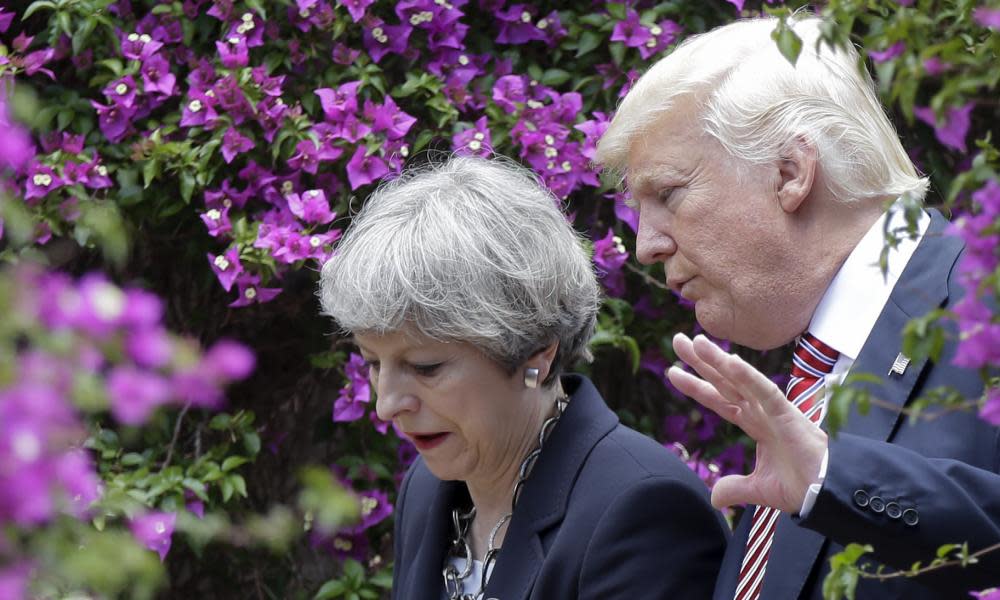G7 leaders agree steps to tackle terrorism after Manchester bombing

World leaders have agreed new measures to tackle terrorism including plans to prosecute western extremists who fight in foreign countries after Theresa May demanded more co-operation after the Manchester bombing.
In a joint statement on Friday evening, G7 leaders said they “condemn in the strongest possible terms terrorism in all its forms” as they moved to crack down on the financing and proliferation of extremism.
Leading a discussion on counter-terrorism at a summit in Taormina, Italy, the prime minister said more had to be done to tackle the threat posed by people returning to Europe from countries such as Syria, Iraq and Libya.
She set out steps that she claimed could improve “intelligence sharing, evidence gathering and bolstering countries’ police and legal processes”, helping avoid a repeat of the Manchester attack.
It is believed that Salman Abedi, whose suicide mission took the lives of 22 people at an Ariana Grande concert on Monday night, had travelled to Libya, and may have taken up arms against Colonel Gaddafi.
The prime minister said the investigation into the attack was ongoing, but that Abedi’s links with Libya “undoubtedly shine a spotlight on this largely ungoverned space on the edge of Europe”.
“It is the case that we believe a number of foreign fighters who went to Syria have returned to the UK,” May said. “We took some extra powers in legislation when I was home secretary to manage the return of individuals, and those are looked at on a case-by-case basis.”
May set out the case for greater international co-operation in a meeting with US president Donald Trump, newly-elected French president Emmanuel Macron, German chancellor Angela Merkel, Japanese prime minister Shinzo Abe and Italian PM Paolo Gentiloni.
She argued that one way to help reduce the risk was to share the identities of foreign fighters who may seek to pass through third countries on the way back to their western homes.
According to a Downing Street spokesman, May raised the question of individuals going to fight for terrorist organisations in Iraq or Syria who may try to return owing to military changes on the ground.
The G7 was called on to share its expertise with the destination countries of foreign fighters including training, police expertise, border security and border watch lists. There were also demands to provide resources to policymakers in countries such as Iraq to help them prosecute, extradite and deport captured fighters.
May also demanded the group securely share data on foreign fighters’ names and nationalities within a clear legal framework.
The PM had also argued that when allies found evidence of illegal activity – such as videos or documents – involving, for example, a Brit in a conflict zone, they should share it with UK authorities to help prosecute them when they return.
G7 leaders also backed the prime minister’s call for internet companies such as Google, Facebook and Twitter to better target extremist messages online, including by developing technology which automatically identifies and removes messages that incite violence.
“We agreed that the threat from Daesh [Isis] is evolving rather than disappearing. As they lose ground in Iraq and Syria, foreign fighters are returning and the group’s hateful ideology is spreading online,” the prime minister said.
Describing the G7 joint statement as “a significant step forward”, May said she wanted to see terrorist material taken down “more urgently and more rapidly than it is at the moment”.
“Make no mistake, the fight is moving from the battlefield to the internet. In the UK, we are already working with social media companies to halt the spread of extremist material and hateful propaganda that is warping young minds. I am clear that corporations can do more. Indeed they have a social responsibility to now step up their efforts to remove harmful content from their networks.”
“Today, I called on leaders to do more. We agreed a range of steps the G7 could take to strengthen its work with tech companies on this vital agenda. We want companies to develop tools to identify and remove harmful materials automatically.”
Asked whether Nato intervention in Libya in 2011 had proved in hindsight to be a success, the prime minister said focus must now fall on the UN to bring stability to the area. “We must redouble our support for a UN-led effort that brings all parties to the negotiating table and reduces the threat of terror from that region,” she said.
In earlier meetings with leaders, the government gave the example of a recent prosecution of a British foreign fighter, Aine Davis from London. Davis was arrested in 2015 near Istanbul, found guilty of being a senior member of a terrorist organisation and jailed for seven-and-a-half years. He had been tracked by Turkish police and intelligence officials days after being smuggled out of Syria by Isis, according to evidence at his the trial.
May cut short her attendance at the two-day G7 gathering and was scheduled to fly back to the UK at the end of Friday.

 Yahoo News
Yahoo News 
